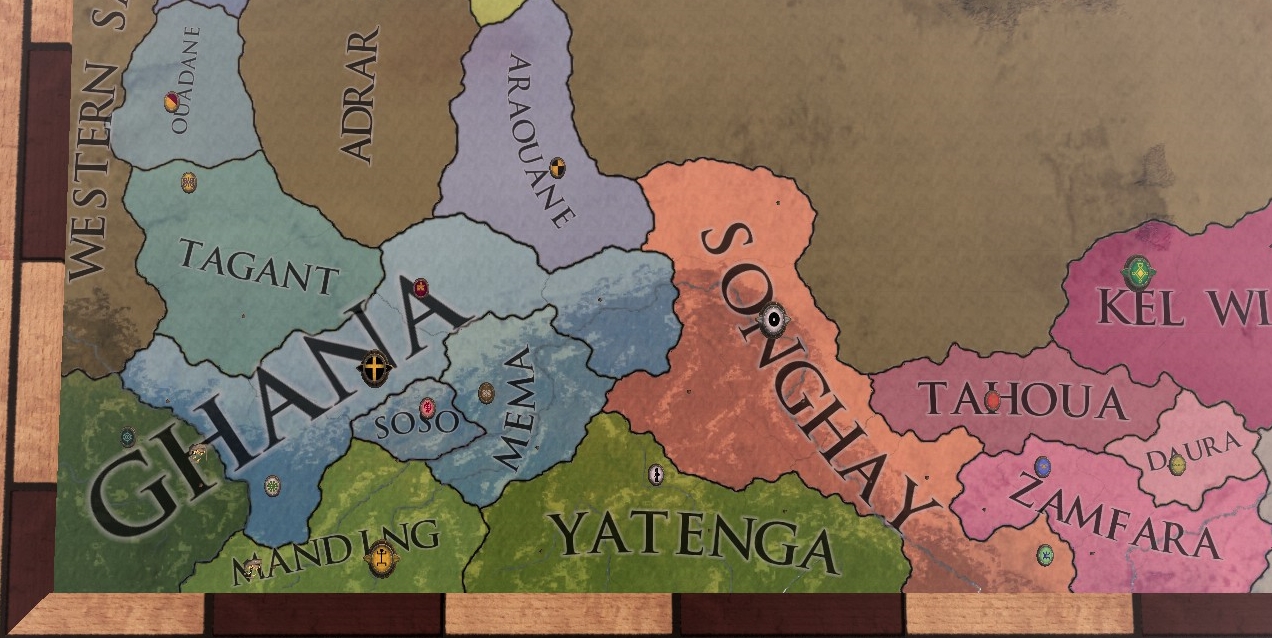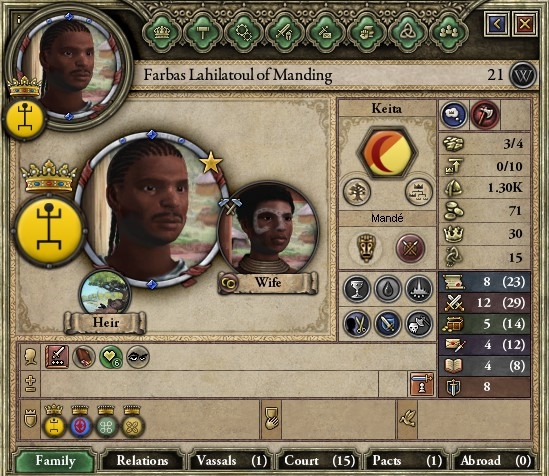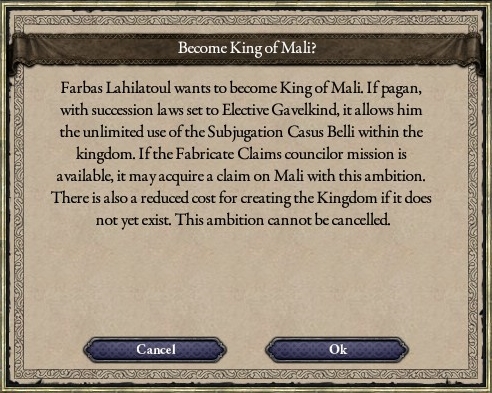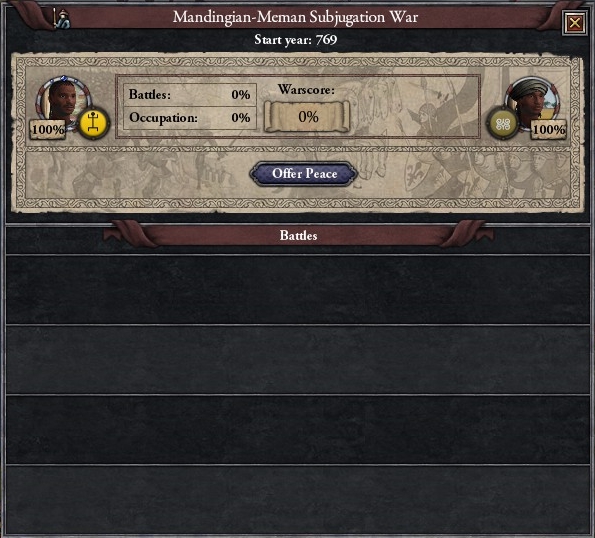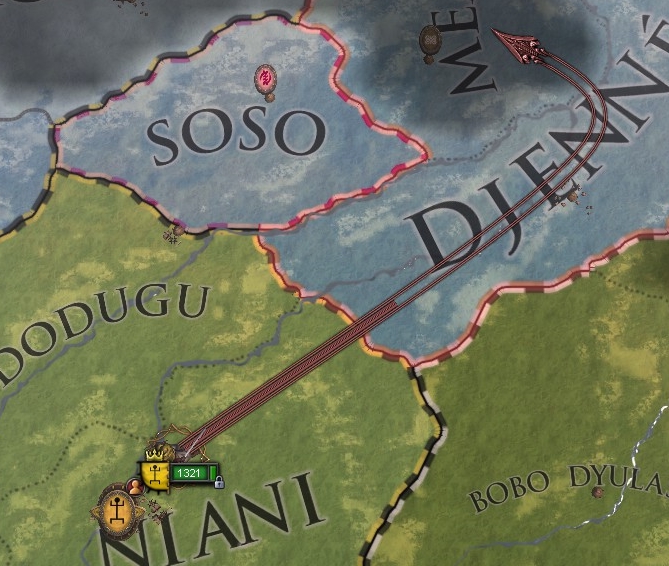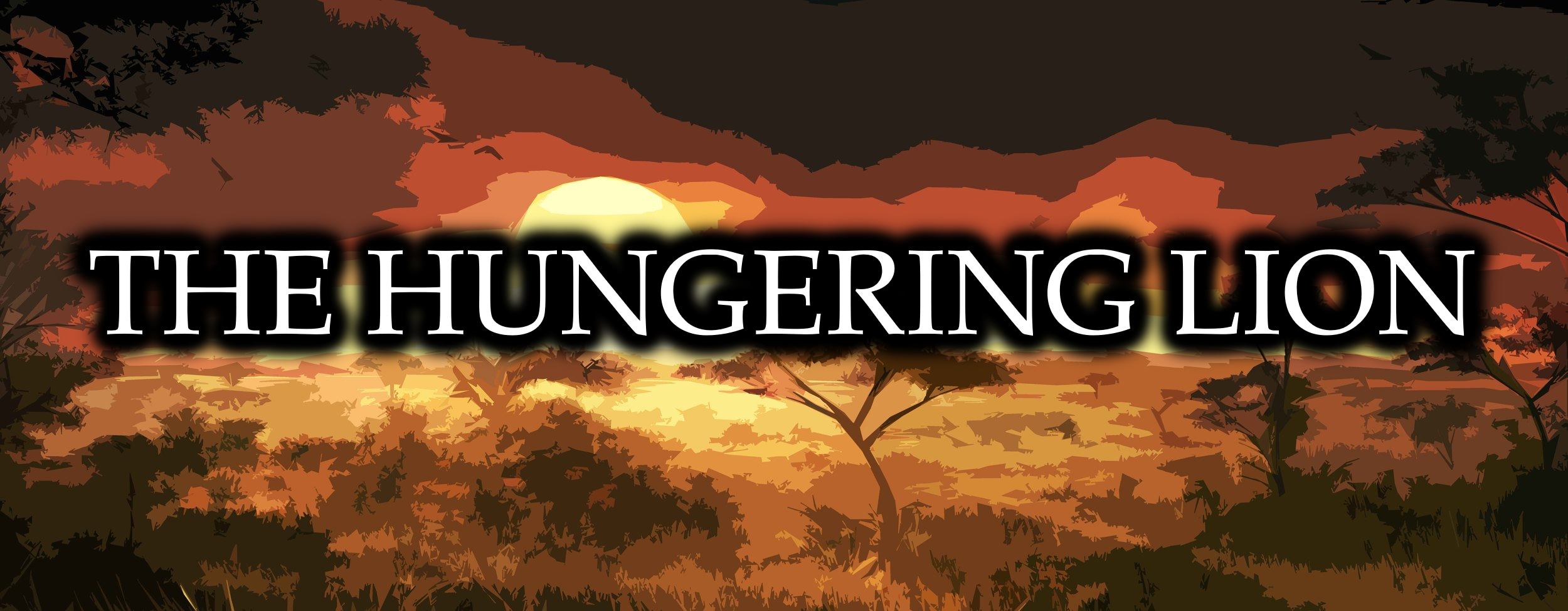
================
SANKARANI RIVER FLOODPLAIN
769 CE
================
Author's Note:
Greetings, AARland! It's likely that some of you are familiar with my numerous Asian AARs, but now I'm shifting gears to something entirely new and different — a run-through starting as the ruler of the Manding tribe in West Africa.
I'm going to be playing with a few restrictions and goals to hopefully keep the game interesting:
I'm going to be playing with a few restrictions and goals to hopefully keep the game interesting:
- No Pagan Reformations permitted. Organised religions will be able to filter in after a few generations and destabilise the region.
- No subjugation of Ghana or Songhay until 1000 CE — they will be allowed to flourish and antagonise House Keita.
- There must be at least one great work in Western Africa by 900 CE, and another by 1100 CE.
Let's see where this goes.
— A Yorks
— A Yorks
================
CONTENTS:
Last edited:


